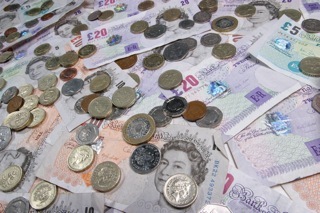Examples of businesses with good cash flows include retailers who are paid cash for goods up front but who get credit from their suppliers, or businesses where a monthly maintenance/retainer fee is paid.
Managing your cash flow
There are several ways of doing this. Controlling your spending is key – are you getting the best prices from your suppliers, could you save money by buying second-hand equipment?
New funding can significantly improve your cash flow. An agreed overdraft may help you through any difficult periods and consider hire purchasing or leasing equipment to free up cash for other areas.
BEWARE – you should also avoid overtrading – it is possible for your business to suffer from its own success! Having to pay costs to fulfil orders before you’ve been paid yourself can lead to serious cash flow issues.
Credit control
Credit control should also be part of your daily business life. Good credit control means controlling how much credit you give customers and making sure you send out invoices immediately after providing goods. You should also monitor and chase late payments.
Tip: Small businesses can claim statutory interest for late payment from other businesses.
Tip: For some good advice on managing your cash flow check out the business advice section on
Simple book keeping
For some, one of the most daunting and dreaded tasks of running your own business is book keeping.
Keeping track of your business finances will make things easier for you and, should you choose to use one, your accountant or book keeper.
Tip: You must keep business financial records for six years.
The range of ‘books’ you need to keep will change from business to business but there are some basic guidelines everyone should follow:
- Set up a Sales Ledger and record every sale made, detailing the date, what you sold, who to and for how much
- Record all business-related purchases in a Purchase Ledger. It will help you keep track of business outgoings and see how much you owe to suppliers at any one time. Make sure you get a receipt or invoice for all purchases made.
- A cash book will keep a record of all money which flows in and out of your business.
It’s a good idea to divide the cash book into two sections; receipts and payments. Don’t forget to record money coming in such as interest payments on money in the bank which you won’t have issued an invoice for.
There are a number of software accountancy packages available to help small businesses with book keeping, if you choose to purchase one of these, make sure it’s compatible with your accountant or book keeper’s.





